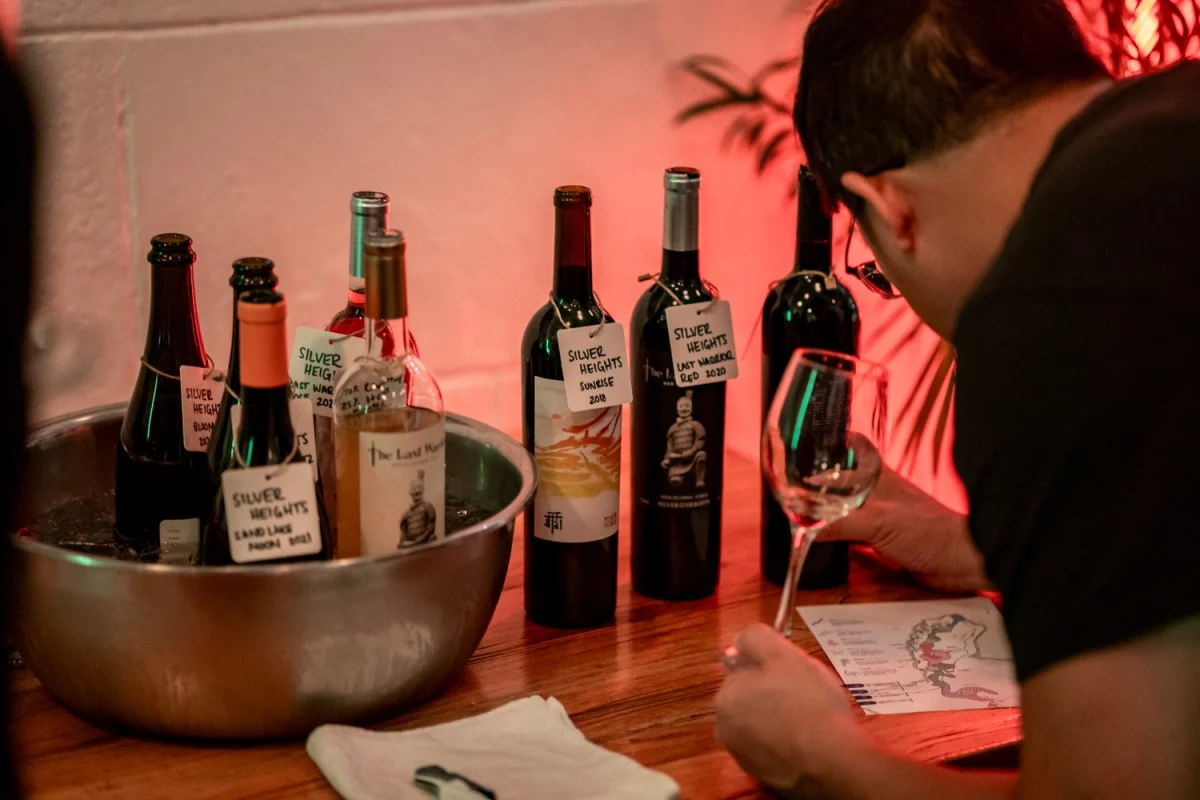A growing number of New York bars and restaurants, from Michelin-starred Gramercy Tavern to neighborhood wine bars like Cellar 36, are now offering Chinese wines thanks to the efforts of Camden Hauge, founder of the China Wine Club. Officially launched in April 2025, the club imports a curated portfolio of Chinese wines that highlight a new wave of modern winemaking emerging from regions such as Ningxia, Shangri-La, and Yunnan.
Hauge, an American entrepreneur based in Shanghai since 2012, became interested in Chinese wines after opening her wine bar Bird in 2017. At the time, there were few locally made wines available, and those that were leaned heavily on traditional techniques modeled after French blends. Her interest deepened after meeting wine educator Ian Dai, who would go on to establish XiaoPu, one of China’s first “nomadic wineries.” Dai’s wines are now part of the China Wine Club’s U.S. offerings.
Through her events agency and a Shanghai wine festival called Crush, Hauge began connecting with producers and organizing tasting events that made wine more approachable and less elitist. The club’s mission is to showcase the diversity and creativity of China’s winemakers while making wine culture more inclusive.
Chinese wine, while not new, has undergone significant transformation in recent years. The Covid-19 pandemic saw many young winemakers return to China from training abroad, injecting new ideas and approaches into the industry. Hauge likens the current moment in Chinese winemaking to California in the 1970s, a time of experimentation and growth.
Wineries like Silver Heights in Ningxia, led by Emma Gao, combine biodynamic farming with French techniques to craft distinctive wines reflective of the region’s high-altitude and mineral-rich terroir. Meanwhile, Dai’s XiaoPu sources grapes from across the country to experiment with style and expression, often using natural, low-intervention methods.
Despite challenges such as U.S. tariffs, Hauge continues to grow the China Wine Club’s presence, placing bottles in more than a dozen venues across New York. Her ultimate hope is for Chinese wines to gain both international respect and domestic appreciation. For Hauge, wine should be democratic, not intimidating, and Chinese wines offer a unique opportunity to rediscover wine culture through a fresh lens.
READ MORE:
